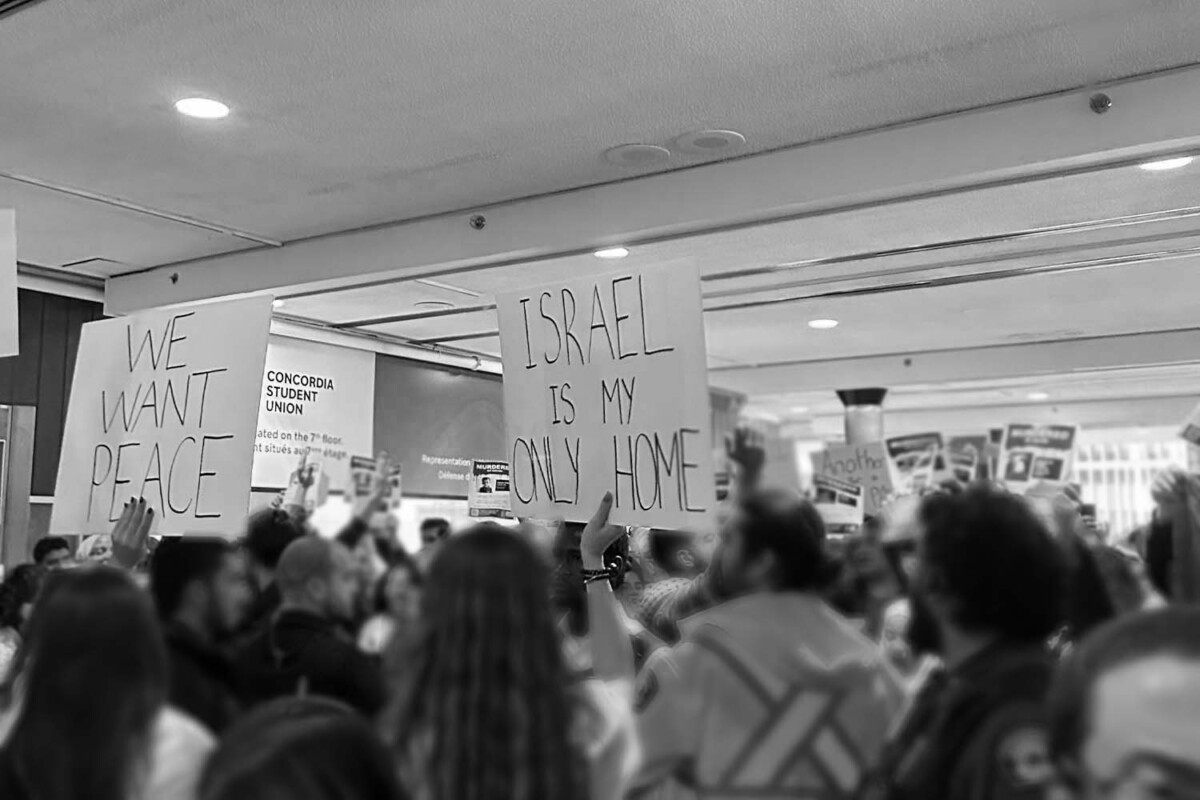Pro-Palestinian and pro-Israeli protests broke out, requiring police intervention.
At around 12 p.m. on Wednesday, pro-Palestine and pro-Israel gatherings were held in the Hall building. The Solidarity for Palestinian Human Rights (SPHR) were holding a keffiyeh sale to raise money for the humanitarian crisis in Palestine Jewish students from Hillel and Start-up Nation arrived soon after to their Shabbat dinner event “to honor and bring awareness to over 240 innocent civilians help captive by Hamas in Gaza.”
Both groups were unaware that they would simultaneously be tabling at the exact same time, as they planned their respective events. For context, SPHR had announced the keffiyeh sale on their Instagram account on Nov. 5. According to an Instagram post by Concordia’s Israeli club, the StartUp Nation, the table for the vigil for Israelis kidnapped by Hamas was booked on Nov. 3. The gatherings at Hall Building soon escalated into protests as members that were not a part of the Concordia community arrived on scene to support their respective groups.
Campus security took action and created a barrier between the two groups, only for about 20 SPVM officers to arrive and diffuse the situation.
One witness, a Concordia student who wished to remain anonymous, said they saw the police officers create a barrier behind a pro-Israeli activist after they saw this person hit a pro-Palestinian activist with a sign.
The same witness also added that “when the police arrived on scene, they were pretty violent with the pro-Palestinian activists, one officer shoved many protestors and brandished a baton.”
“In my view,” the witness said, “the protest centred on calls for ceasefire and an end to apartheid—there was a statement from an [palestinian] organizer that denounced antisemitism and stated that the fight is with the state of Israel and not Jews.”
Protesters were seen ripping flags, and throwing water bottles and punches. Two pro-Palestinian protesters were arrested and several other protesters from both sides were injured.
“I’d like it to be known that the protest was not one of hatred towards Jews, but a denouncement of the crimes of the Israeli state,” the witness said about the pro-Palestinian protest. “I believe that is an incredibly important distinction to make.”
Following the events, SPHR released a statement yesterday morning saying “they would like to remind everyone that we, the students, will NOT allow this to deter us from our continued advocacy for the freedom of the Palestinian people.”
More to come on this developing story.
